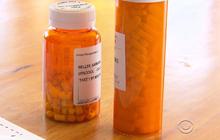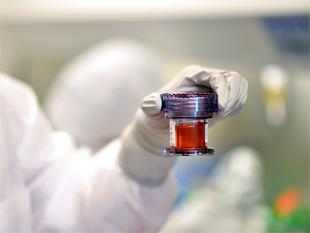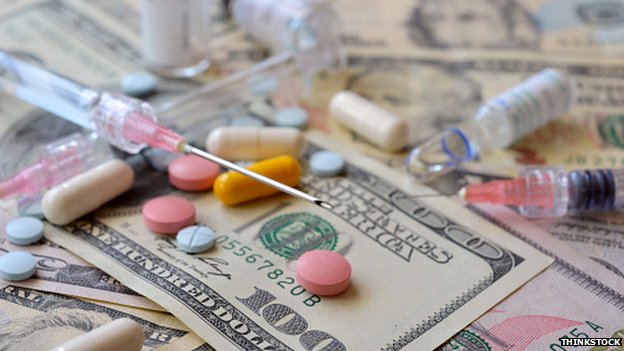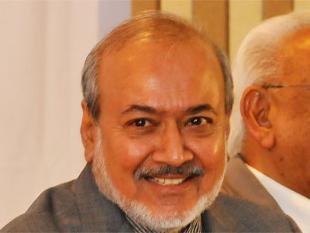“Childhood and TYA (teenage-young-adult) cancers are rare. Consequently it can be difficult to get commercial backing from pharma for drug development and testing, and there are challenges in many areas, including supportive and relapse care studies, new agents and front-line treatments.”
Read more – pharmaphorum
November 14, 2014 | Greg

“While the costs of prescription drugs have been controversial for a long time, the launch of Gilead’s breakthrough hepatitis C drug, Sovaldi, has intensified the debate. There have recently been a spate of attacks on the pricing of new drugs from a variety of places including the BBC and the WHO. However, one critique in particular attracted my interest. Entitled “Health care expert says drugmakers are lying about why drugs cost so much,” by Don Seiffert of the Boston Business Journal, this piece goes beyond the attacks to propose a solution.”
Read more – Forbes
November 13, 2014 | Greg

“For years, patient advocates and families have lobbied Congress for more funds to combat rare diseases. But to what extent does lobbying make a difference when Congress sets appropriations and the National Institutes of Health makes funding decisions?”
Read more – Pharmalot – WSJ
November 13, 2014 | Greg

Barbara Heller has an autoimmune disease called PBC. She takes the generic drug Ursodiol to prevent liver damage.
“The last refill that I got for Ursodiol cost $94.50 for three months, Heller said.
In August, she called for her usual three-month renewal, expecting her cost would still be under $100.
Instead, it was $1,212.30.
Read more – CBS News
November 13, 2014 | Greg

“Five senior executives of Ranbaxy Laboratories’ US arm, who quit last month, have set up their own venture to act as a one-stop shop and offer a comprehensive array of services ranging from securing regulatory permissions to distribution tie-ups for Indian and European drug makers seeking to enter the world’s largest drug market.”
Read more – The Economic Times
November 12, 2014 | Greg

“Yet another Indian drugmaker has run afoul of the FDA, this one for not doing enough to track down the source of impurities in some products and failing to investigate when customers complained about odors emanating from its APIs. The action comes as the FDA has stepped up oversight in a country that accounts for about 40% of U.S. generic and over-the-counter products.”
Read more – FiercePharma
November 12, 2014 | Greg
“Drug prices are a touchy subject in Massachusetts. On one hand, as a pioneer in efforts to increase health care coverage for everyone, the state needs to rein in out-of-control drug costs. On the other hand, as the global hub of biotech research, our economy depends on those high prices to generate the revenue to keep investors pumping money into our hundreds of companies.”
Read more – Boston Business Journal
November 11, 2014 | Greg

“With the Ebola virus ravaging Guinea, Liberia, and Sierra Leone, one would think that the World Health Organization (WHO) would be very busy doing what it can to help slow this serious outbreak. Yet, it appears that one of the WHO’s priorities is to attack Pharma as part of the problem. Last week, WHO Director-General Margaret Chan assaulted the industry for not taking an interest in developing an Ebola vaccine.”
Read more – Forbes
November 10, 2014 | Greg
“It’s cheap, easy to make, and a nice break from the frozen pizza or microwavable mac n’ cheese you’ve been munching on for dinner; it’s ramen — a.k.a. instant noodles. Those tasty meals and snacks that can cost something like 18 cents per pack/meal if you buy in bulk.
All you need is hot water, the ability to tear open a seasoning packet, chopsticks (or a fork and spoon), and some slurping skills. It fills you up pretty quick and also keeps your wallet full, so what’s not to love?”
Read more – TheStreet
November 10, 2014 | Greg

A virus that infects human brains and makes us more stupid has been discovered, according to scientists in the US.
The algae virus, never before observed in healthy people, was found to affect cognitive functions including visual processing and spatial awareness.
Scientists at Johns Hopkins Medical School and the University of Nebraska stumbled upon the discovery when they were undertaking an unrelated study into throat microbes.
Read more – The Independent
November 10, 2014 | Greg

“Pharmaceuticals is an extraordinarily profitable business. The most profitable, in fact, looking at figures for last year. But for how much longer is the question occupying the minds not just of big pharma executives, but of health professionals and governments the world over. There are already signs of trouble ahead – thousands of job losses and widespread consolidation are hardly characteristics of an industry in rude health. But this is just the beginning of a process that could fundamentally change the pharmaceutical sector forever.”
Read more – BBC News
November 7, 2014 | Greg

“One of the most persistent memes about the drug industry is the contention that pharma spends more on marketing than on R&D. Typically, when enterprising folks try to prove that assertion, they compare SG&A spending to R&D budgets. Of course, SG&A includes general and administrative expenses, not just sales and marketing spend. So, those comparisons are easy to critique.
But now, the BBC has some numbers on marketing spend in particular. Sourced from GlobalData, they show that 9 out of 10 Big Pharma companies do in fact spend more on marketing than on R&D. In some cases, that’s twice as much.”
Read more – FiercePharma
November 7, 2014 | Greg

“Drugmaker Dr Reddy’s Laboratories Ltd said on Friday it has received final approval from the U.S. Food and Drug Administration (FDA) to make a cheaper version of Roche Holding AG’s antiviral Valcyte, sending its stock to a record high.
The move comes after Ranbaxy Laboratories Ltd said on Thursday that FDA had stripped the company of its tentative approval to launch the first copy of the drug due to quality control issues at its manufacturing plants.”
Read more – Reuters
November 7, 2014 | Greg

“Imagine an industry that generates higher profit margins than any other and is no stranger to multi-billion dollar fines for malpractice.
Throw in widespread accusations of collusion and over-charging, and banking no doubt springs to mind.
In fact, the industry described above is responsible for the development of medicines to save lives and alleviate suffering, not the generation of profit for its own sake.
Pharmaceutical companies have developed the vast majority of medicines known to humankind, but they have profited handsomely from doing so, and not always by legitimate means.”
Read more – BBC News
November 6, 2014 | Greg

“Habil Khorakiwala, the patriarch of Mumbai-based Wockhardt Pharma, said he has no plans of selling his pharma business anytime soon, in fact, “not in ten years”. “I have created this organisation, so leave aside the emotional links for not divesting which is always there, but purely from a business angle, I don’t need cash. I am sitting on Rs 2,000-crore cash reserve. This problem is not a permanent one, it will go away ,” Khorakiwala told ET at his South Mumbai residence, referring to the drugmaker’s niggling run-ins with the United States drug regulator.”
Read more – The Economic Times
November 6, 2014 | Greg










